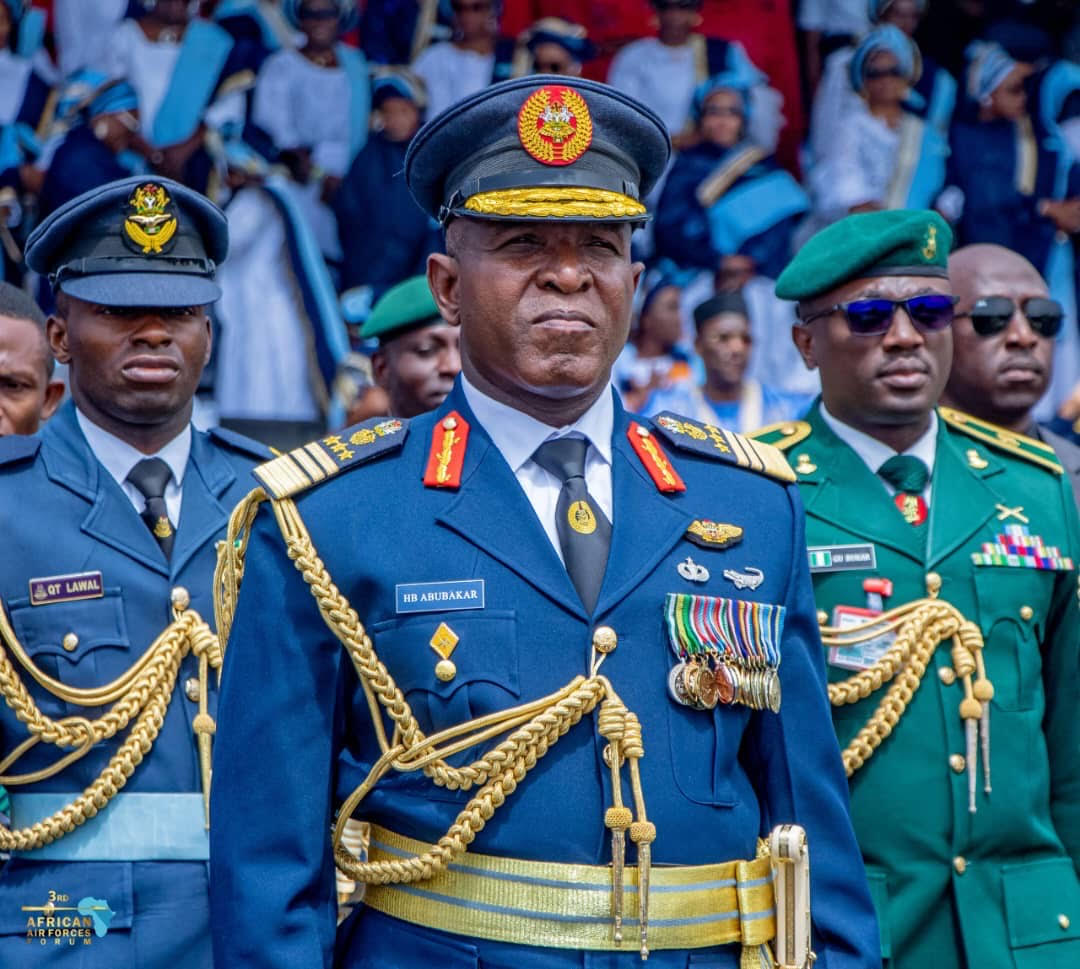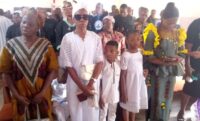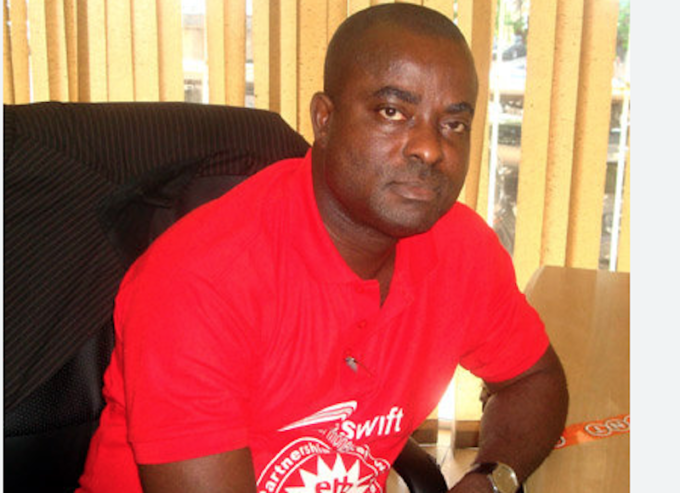In a rapidly evolving security environment, the Nigerian Air Force,NAF, has intensified its transformative journey aimed at strengthening its operational effectiveness, modernising its assets, and enhancing its strategic footprint across the country. As it recently clocked the significant milestone of 61 years, the NAF under the stewardship of its 22nd Chief of Air Staff, CAS, Air Marshal Hasan Bala Abubakar, has placed emphasis on mission-oriented development, significant investments in fleet modernisation, deliberate training, infrastructure upgrades, and institutional reforms—all guided by a deep commitment to professionalism, precision, and accountability. In a candid conversation with THISDAY in a media chat during the recent commemoration of the 61st anniversary of the NAF, the CAS delved into the reality of Nigeria’s security situation, the air force’s evolving doctrine in intelligence-driven warfare, the mitigation of civilian harm, and the integration of cyber and data analytics into air operations. Chiemelie Ezeobi writes that under the present leadership, the NAF is indeed retooling itself to meet both present challenges and future contingencies as an Air Force focused not only on flying missions, but on building a legacy of excellence, resilience, and innovation
When Air Marshal Hasan Bala Abubakar was made the 22nd Chief of Air Staff (CAS) two years ago, he promulgated a Command Philosophy “To transform the Nigerian Air Force into an agile and resilient force that effectively meets national security demands in all operational environments.”
Two years down the line, this command philosophy has become the foundation upon which a broad spectrum of reforms and innovations have been built—reforms that are now redefining the structure, capabilities, and strategic posture of the Nigerian Air Force. From comprehensive fleet modernisation and the revitalisation of grounded assets to the development of advanced training regimes and institutional frameworks, the Air Force under his leadership has pursued a clear trajectory of transformation.
Accelerating Command Philosophy
On assuming office, Air Marshal Abubakar undertook a comprehensive environmental scan of the Air Force’s strengths and weaknesses and set to work to transform the NAF.
“So on assumption of office of the 22nd Chief of Air Staff, I had to take a stalk of where we’re coming from as an Air Force, where we were at that point and determine where we wanted to go as an Air Force and what we needed to do to get to where we wanted to go. As a result of that, I carried out a very detailed environmental scan, not looking at only operations, but also other areas.
“In fact, a complete scan of all the aspects of Air Force life, logistics, aircraft maintenance, administration, civil military relations, operations, of course, and every other thing. Now, after carrying out this environmental scan, we discovered some gaps in our force structure and establishments that we needed to fill. We also discovered some deficiencies in terms of capabilities that we needed to have so that we can be more efficient and optimal as an Air Force, particularly with regard to the security situation and also looking for potentially the challenges that we’re likely to be facing maybe in the next decade or two.
“Now, having done this full environmental scan, I promulgated my command philosophy for the Nigerian Air Force, which is supposed to serve as a guide to the Nigerian Air Force as to where we want to be as an Air Force. My command philosophy is to transform the Nigerian Air Force into an agile and resilient force that effectively meets the upper demands of national security in all operational environments.”
To drive this vision, five key enablers were promulgated: Optimising Force Structure and Establishments; Deliberate Training and Mission-Oriented Force Development; Proactive Logistic Support and Maintenance Culture; Research and Development, Leveraging Technology and Partnerships; and Motivation through Welfare and Infrastructure.
According to CAS, “These focal areas so that they are not our activities plans and what we do are not limited to these focal areas, but these areas are supposed to serve as guides or focal points so that we don’t dissipate time and resources without a focus. So these areas that are supposed to serve as focal points, which I call my key enablers to successfully achieving the command philosophy include, one, optimising force structure and establishment. I told you about some of the gaps we saw in terms of force structure and establishment for enhanced operational effectiveness.
“The second key enabler, deliberate training and mission-oriented force development, while the third had to do with proactive logistic support and a strong maintenance culture. The fourth key enabler was a focus or a prioritization of research and development, leveraging technology, lessons learned, as well as strategic partnerships. And the last but not the least of the key enablers is ensuring a highly motivated force through enhancement of welfare and infrastructure renewal.”
Optimising Force Structure and Intelligence Enhancement
In this regard, Air Marshal explained some immediate initiatives to strengthen intelligence and operational effectiveness.
“So I will just talk briefly on some of the things we are doing along the lines of this key enablers just for ease of understanding so that we can have some perspective as to what has been going on in the past one year within the Nigerian Air Force. So starting with the first key enabler of optimising force structure and establishment for enhanced operational effectiveness, I said we discovered some gaps in terms of our establishments during the environmental scan. Now, one of the things that we saw that was very, very critical to the success of optimisation of operations was the criticality of intelligence, especially in the light of the kinds of operations that we are conducting.
“So before now, because we were built, trained as a conventional Air Force, but now here we are fighting a very unconventional war or having ourselves operating in a very unconventional environment. So therefore, we need to do a lot of redefinition and reassignment. So one of the gaps we saw was that our intelligence gathering capabilities was not up to scratch.
“And intelligence and the operations we are conducting are highly, highly intelligence driven. So we have to do a lot of investments as far as our intelligence assets are concerned, both in terms of human capacity and in terms of equipment. As a result of this, we got into an inventory additional four airplanes dedicated to ISR (Intelligence, Surveillance, Reconnaissance). The DA62 airplanes, which came into inventory towards the end of 2023 and then the beginning of 2024. So those have significantly increased or improved our ISR capabilities. There are more assets coming.
“Also, our data analysis cells in the various data sub-operations who were supposed to gather the data, infuse them, and then turn them into actionable intelligence. We did a lot of investments in terms of training, in terms of equipment, at ISR software. So that at the end of the day, the intelligence coming out of those data cells was also much better,” he said.
Deliberate Training and Mission-oriented Force Development
Speaking on the second key enabler, which is deliberate training and mission-oriented force development. He said they saw from the environmental scan that a lot of individuals coming out of training from NAF training institutions were not meeting the requirements in the field.
“Like I said earlier, a lot of them (training institutions) were established 20 years ago, 15 years ago, and the syllabi that were applicable and appropriate at that point in time are no longer appropriate. So when these individuals come out, they are not useful to us in the field. So we had to overhaul all the syllabi of our training institutions to make sure that the courses or the products coming out of those institutions are relevant to what is required in the field.
“In The past, we also did a lot of training outside the country because, of course, the Air Force is very technical and a lot of the skills, the skill sets required to operate and maintain the aeroplanes, particularly another weapon systems, are not available here. So we procured a lot of training outside the country, but we probably did it in a haphazard way because we found that we have trained over so many years and so many people, but we still had a lot of gaps.
“So probably we were training without really identifying the exact gaps in terms of skills, knowledge, experience. We decided to strategise, and now we procure training only when we have specific gaps in terms of skills, knowledge, or experience. We also make sure that the individuals we send merit it so that we are getting the best investments, you know, the best outcome of our investments.
“We have also invested in training of our personnel in terms of data analytics because that is the future. The more well we have data and we’re able to analyse it, the more effective we’re going to be able to carry out our operations through better decision-making because of the data and information that we have available,” he posited.
Fleet Modernisation and Force Structure Optimisation
On fleet modernisation and force structure optimisation he said they were lucky to also benefit from “what I would call a fleet modernisation effort by the federal government to make us much more relevant to the kind of modern operations that we are having because a lot of our assets were procured in the 70s, maybe early 80s. So of course, there are legacy systems. They are very, very incapable of carrying out the kinds of operations based on the equipment on board and their capabilities. But I’m glad to mention that the federal government has intervened.
“A lot of assets have been procured for the Nigerian Air Force. So far, in the past one year or so, we have received 15 brand new aeroplanes, including the four DS-62 I talked about. There are 60 one-to-nine attack helicopters from Turkey, which are actually the ones that turned the tide in the South-South in the fight against oil temps. Also, we have the King Air 360, which also does a bit of ISR, as well as the Augusta 109 tracker. So a total of 15, but that’s just part of the news. We have on firm orders for additional 49 aeroplanes that are supposed to come into the inventory of the Nigerian Air Force in the next one, one and a half years because the aeroplanes are not what you can just buy off the shelf.
“You have to order, specify, they build them gradually. And even for maintenance and sustenance purposes, you don’t want to have all their fleet coming into the inventory at the same time. So therefore, the balance 49 aeroplanes are coming into the system in the next one to one and a half years. This includes additional 10 Augusta 109 trackers, which we already have two. These are light attack helicopters. They’re not fully combat helicopters, but you can do light attacks with them.
“Those are the helicopters that are currently containing some of the challenges we have in the Southeast. They are very suited for that operation. We also have the M346 fighter ground attack aeroplane. We are having 24 of that coming into the inventory, starting maybe in the next three months we’ll have the initial batch coming into the system. These are very modern fighter ground attack aeroplanes that are very suited with a lot of precision strike capability and modern avionics. So they’re able to do a lot more than what the aeroplane we have in the inventory that is performing that symbol currently is doing, which is the Alpha Jet, which is a legacy aeroplane that is about 50 years old in the inventory.
“Those aeroplanes will replace that and they will very significantly improve our capacity as far as that airport is concerned. We also have three CASA 295 aeroplanes which are light transport on their own and tactical mix aircraft that are coming in. And then we have the almighty PH-1 Zulu Cobra helicopter. These are fully dedicated attack helicopters, which are also very, very suited to the kinds of operations we are doing. These are coming from the United States of America. It’s a complete package with training, weapons systems, ground support equipment, total package.
“So with all these aeroplanes coming with very modern systems, precision strike capabilities, a lot of capabilities for ISR and a lot of other systems that will really enable us to operate optimally and address not only the current challenges we’re having, but even challenges that we can foresee maybe in the next decade or two.
“Still regarding our fleet, we were also just as a stopgap measure because the AlphaJet has done very well and it’s still what we have. Before we optimise the use of the M3 forces coming, we still have to operate the AlphaJet for some time. So we bought or procured nine pre-owned aircraft AlphaJets from the French Air Force. They are still in fairly good condition and they are what we are using to sustain some of the theatres currently. We have also invested very significantly in some of the aeroplanes that have been in the system but have not been operable for quite some time.
“So our ATL-42 aeroplanes, our MI-35s, MI-171. As a matter of fact, we just deployed the MI-171 which is also a very formidable helicopter, capable of night operations and ground attack, including cannons, bombs, and rockets. It’s very formidable. We just deployed it to the northeast about a week ago. The MI-135 is also on its way. All these aeroplanes have been in the system for quite some time for reasons of serviceability, spares, and training.
“We couldn’t fly them but they’re all coming back gradually. Same thing with the Belfour 12s as well as the Super Puma helicopter. They are all coming back into the inventory. When we came back, the decision we took was that every aeroplane in the Nigerian Air Force that is operable will be returned back to serviceability status. And I think we have achieved up to 90 per cent of that target as of date”.
Upgrading Airfield Infrastructure
Still, in terms of optimising the force structure, CAS said they realised that there are a lot of limitations in terms of their airfield infrastructure, as quite a few of them where they operate from do not have facilities. “For example, instrument landing systems, runway lights, and even sufficient hangarage. And that limited what we could do. It means we can’t operate at night. And of course, you know the adversaries are much more active at night. So we have to do a lot of investments to upgrade a lot of our airfield infrastructure with instrument landing systems, with runway lights, hangars, expansion of aprons, and a whole lot of government activities around the airfields. Some of these airfields include Enugu, Otakot, Makodi, Katuna, Bauchi, Katsina. All these airfields where we carry out, we launch our operations in the various theatres and they are all basically currently upgraded or are currently undergoing a lot of upgrades.”
Establishing Institutions to Support Force Structure
Admitting that force structures need viable support in strong institutions he said: “Still looking at our force structure because we had to do a lot of that. You need to have a very good structure for you to, that will be the foundation for every other thing that you do. If you don’t have a good structure then every other thing is not likely to be able to stand the test of time. So still talking about force structure, we have to establish a few institutions and offices also to complement or to optimise our structure to be able to further enhance our capacity for air operations.
“The issues we have had with collateral damage, with civilian harm, and the effect that it has had in terms of our operations because, of course, like I said, the adversary is within. A lot of times you have to, and that’s why it’s very highly intelligence-driven. I also need a lot of precision otherwise every day you go out there you’re going to have civilians who are not supposed to be harmed, getting harmed.
“So we had to establish a very robust organisation of branch statutes that we call Civil-Military Relations Branch that will coordinate a lot of our activities in terms of civil-military relations, particularly with a focus on civilian harm mitigation.”
Giving an instance with the seminar that took place the day of the interview, where the NAF unveiled a policy document on their civilian harm mitigation action and response plan, he said the important document will guide their activities going forward, not only to minimise civilian harm in their operations, but also in case it does happen, all the actions that they will go through to alleviate it and then to make sure that it doesn’t happen in the future.
Also in line with force structures, he said they established the Transformation and Innovation Branch to take care of the research and development and to encourage other innovative activities. Also established was the Directorate of Peace Support Operations, Directorate of Land Administration, Directorate of Airworthiness and Certification, which is responsible or will be responsible for certifying their aeroplanes, personnel, in terms of their qualification and really making sure that standards are met and maintained in terms of carrying out their both flying and maintenance activities.
“We also established the Directorate of Cyber Warfare, which, of course, in the light of technology and the threats in the cyber domain, we need to have an establishment that also will look at that and develop a lot of capacity in that particular sphere. We also established the Airpower Centre of Excellence, which will combine the Air Warfare Centre that is currently in Makurdi, the Air Warfare Doctrine Centre, also, which is here in Abuja, the Institute of Airpower Studies, and then the Airground Integration School.
“All these institutes that are currently on their own and probably not operating optimally, we established the Airpower Centre of Excellence so that all these schools come into one environment and so they can complement each other in terms of manpower, in terms of resources, and generally synergise and optimise whatever is coming out of any of those schools. We also established the Air Force College of Logistics to take care of all our logistics needs. We did a lot of work to ensure that we are not duplicating because there is an Army College of Logistics, there are so many other logistics institutes or civilian schools where you can learn about logistics courses, and we do not want to just duplicate or waste our resources while we can obtain what we wanted to do in other places.
“But what we realised after a very detailed study is that our own challenges, as far as that is concerned, cannot be sorted or are not available in all these other institutions. So we needed to have something very specialised that would take care of our own needs based on our own peculiar activities and needs. That was why we established that. So that has also come on board to address some of the challenges we have in terms of manpower, structures, and the like.”
NAF at 61
The Nigerian Air Force recently celebrated its 61st anniversary, a milestone marked by a series of very formidable activities including civil-military relations engagements, aerial flypasts, aerial displays, and research and development competitions.
To this the CAS said they have every reason to be proud, to be thankful to God, and to be happy and to celebrate. He said: “Looking at where we are coming from, when the Air Force was established in 1964 by the Act of Parliament, and we started as a very small arm of the Armed Forces, a very tactical Air Force that was capable of very limited activities, specifically tactical troop transport within the theatres of operation, and going through a lot of transformation, where we are today, an Air Force that is capable of carrying out operations with strategic effects far beyond even the borders of Nigeria.
“And also having a lot of additional capabilities in terms of assets, weapons systems, skills and experience. So we have every reason to be very proud of our achievements. Also, we are now the fourth largest Air Force on the African continent. And we are on our way to probably becoming the second and maybe even the first eventually due to our size, our capabilities and the array of assets that we have in our inventory. So I think the Nigerian Air Force deserves a lot of applause.”
Meanwhile, one of the standouts of the anniversary was the hosting of the fourth edition of the African Air Forces Forum in Lagos, which attracted over 100 delegates from 34 countries including Air Chiefs, senior air force officers, defence attachés, and aviation industry leaders, to push for strengthened collaboration in aerospace innovations to enhance regional security against transnational threats.
“It was very important forum where chiefs of the Air Staff of African countries come together to discuss, look at the security situation in the whole of the African continent, leverage each other’s strengths and see how we can also alleviate each other’s weaknesses and see how we can really cooperate across borders to address some of the common challenges that are plaguing the continent as a whole. So it’s a very important forum for us. And by virtue of our position as the giant of Africa, it’s also very important that we are playing leadership role in this forum. That is why we have been hosting this forum,” he added.
Overview of Security Operations Across Nigeria
While noting that the security landscape is becoming more dynamic from the northeast, “where we have been conducting counter-terrorism operations. In the northwest, where we have been conducting anti-nuclear and anti-terrorism operations. In the south-south, in the southeast,” Air Marshal Abubakar added that, “in the various sectors of operations that we have been carrying out operations, as you are aware, essentially, internal security operations, meaning that the adversary is within.
Given the nature of these operations and the nature of the adversary, he said the importance of having a very robust, objective and diligent reportage by the media cannot be overemphasised, a role he noted that they have been so far very diligently and effectively.
Air Operations and Security Achievements
On operational successes, Air Marshal Abubakar gave a detailed overview of the past year’s air missions. “Within the past one year, sometime between 2023, towards the end of 2023 and 2024, Nigerian Air Force flew about 10,500 hours in close to 7,000 sorties which was as a result of about 6,000 missions in the various theatres of operations, of course, including arm breaking, air interdiction, intelligence surveillance, air reconnaissance, close air support, tactical airlifts, the complete gamut of air operations in the various theatres. Now, all these missions contributed decisively to attainment of operational objectives and improvement of our national security in the various theatres of operations.
“Especially following our three-pronged approach which has to do with leadership decapitation, logistics triangulation, and of course, denial of the adversary, the use of force in the various theatres. Using this three-pronged approach, we have made very significant progress. A lot of the terrorist leadership and their followers have been eliminated.
“I don’t want to give you numbers because a lot of numbers have been bandied. But we have very credible statistics which have been verified through our ISR and also human intelligence in the various theatres. But suffice it to say that a very large number of terrorist leadership as well as their followers in all the theatres have been neutralised.
“A lot of also logistic structures including vehicles, motorcycles, storage areas have also been destroyed. Similarly, within that period of one year, a lot of terrorists and their families are surrendering in particularly the Northeast and the Northwest. So far in the past one year, we have about 121,000 and the numbers are increasing daily. So we’re making a lot of progress as far as the conduct of our operations are concerned in the various theatres of operations,” he disclosed.
Regarding economic sabotage in the oil-rich South-South region, the Air Marshal noted that “In the South-South, sometime in 2023, it was reported that Nigeria lost about $23 billion to oil thefts. Following that, sometime in 2023, we escalated our operations particularly with the projection of air power in that particular theatre. And towards the end of 2023 to mid-2024, our daily production increased by 13 per cent from what we were having at about 1.5 million barrels per day we got to about 1.8 million barrels per day at some points.
“The terminal factor recently reported through all the pipelines has been 90 per cent and above, meaning that all the lines are green. So also in that theatre, talking about improving or containing the economic sabotage and improving our revenues from oil is a lot of improvement. It’s a work in progress. The target is to, of course, attain our peak quota of production, which is above 2 million barrels per day. So we’re working on that and hopefully we’ll be able to attain that very soon.”
Undoubtedly, under the leadership of Air Marshal Hasan Bala Abubakar, the Nigerian Air Force is steadily evolving into a more capable, responsive, and forward-looking institution—fully aligned with national security imperatives and ready to meet emerging challenges across all domains of warfare.


















Leave a comment